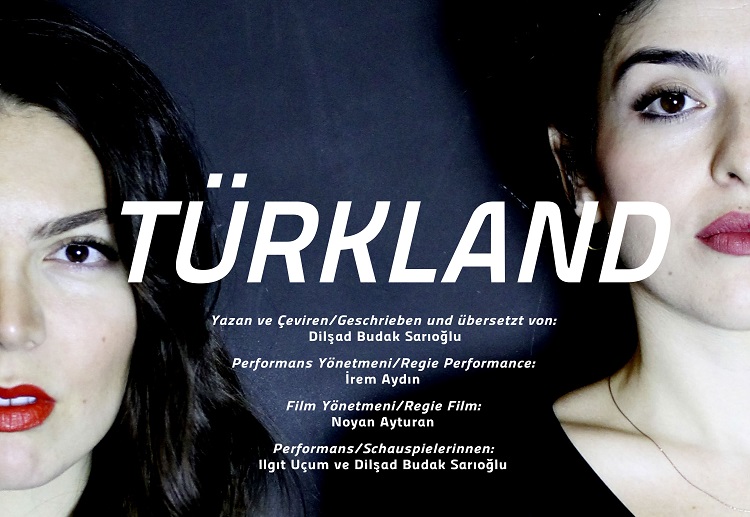Turkish-German Identities
TÜRKLAND

On July 27, Dilşad Budak-Sarıoğlu and her Türkland team, in cooperation with Friedrich Naumann Foundation Turkey, organized a film screening of their reading performance TÜRKLAND on the foundation’s YouTube channel with a follow-up discussion afterwards. Since the outbreak of the global pandemic, artists are struggling to make a living and need to find new creative ways to move their work from the physical to the digital world. This is why TÜRKLAND was transformed into a movie as a digital performance. Adapted from the autobiographical novel of lawyer, actor and writer Dilşad Budak-Sarıoğlu, the text deals with immigration, identity, German-Turkish history and relations in a thought-provoking and humorous way.
With the aim to promote German-Turkish dialogue, this 60-minute multimedia performance is presented in German and Turkish, with both subtitles and performances. The author questions how the social conditions in both countries formed her current personality. The audience can relate to real-life stories and they have the power to gain the audience's empathy and encourage reflection. Questions that might be asked are: How can I change myself so that I can come to terms with the complex questions raised by issues such as identity, belonging and mutual understanding? What can I change in my relationship with myself and the outside world? The play also paves the way for socio-political debates, as it explores the subject from different perspectives, and invites the audience to be sensitive to the experiences and feelings of "others". That's why conversations with the audience right after the performance are an integral part of the Türkland program. Rather than predetermine answers and solutions like a teacher, Türkland tries to present examples based on cultural and artistic content, from which the target audience can reach their own conclusions. Ultimately, the play tries to strengthen the dialogue with multipliers despite all the differences and political conflicts and shows how new opportunities can be generated for closer cooperation on common goals.
In the follow-up discussion under the moderation of Turkish-German journalist Nalan Sipar, who many of our readers will know as the co-host of the popular #SizdeDurulmarNasil dialogue format, Dilşad Budak-Sarıoğlu, Ilgıt Uçum and the director of the play, İrem Aydın, discuss immigration from a personal perspective and answer the audience’s comments and questions. It became clear at the beginning that the Turkish perception on German Turks is very different from what they are actually going through. Director Aydin who at the time of the creation of the performance was preparing for moving to Berlin herself, saw Budak- Sarıoğlu’s story as a preparation for what she will have to face in Germany and showed how little is known about the struggles of the so-called “Gastarbeiter” and the following generations who grew up in a different culture. On Sipar’s question on how it is to grow up in two cultures and having two identities, Budak-Sarıoğlu indicates that there are actually three identities: the German, Turkish and “Almancı” identity, a (derogatory) term for the German Turks, which brings another layer to the already complicated issue. For the supporting actress Ilgıt Uçum, who was born and raised in Turkey, it was not hard to familiarize with her colleagues story and bring her feelings on the stage as for her it eventually is the story of all of humanity trying to find a place in this world. This finding was also in line with the audiences’ feedback as every single one could find themselves in the play. In order to add a more socio-political layer as well, Nalan Sipar and Dilşad Budak-Sarıoğlu discussed about the German education system and the responsibility of the German state to provide equal chances for every citizen as people with a migration background and children from working class families have a provably harder time to succeed in the German school system than their German peers and those from academic families. The discussion ended with Budak-Sarioglu talking about possible future projects.
All in all, this jointly organized event will have a transnational impact as it is bilingual, attracting participation from both Germany and Turkey, and also contributing to the German-Turkish dialogue with its content. Moreover, due to its broad target audience, it forms the basis for building a political network, as it highlights the common interests between the multipliers involved and FNF.